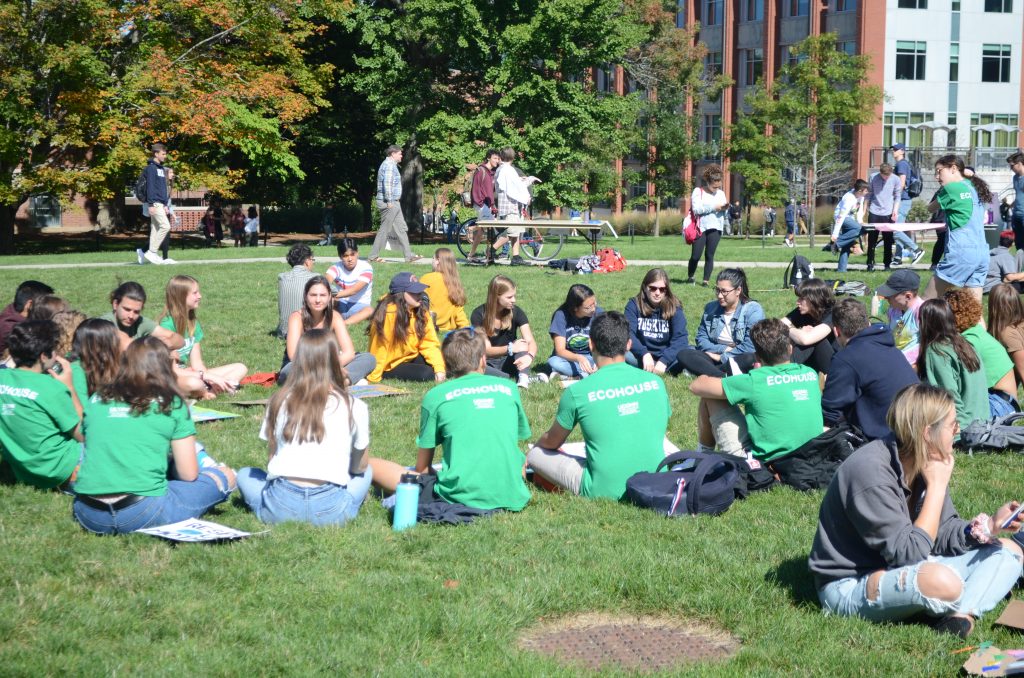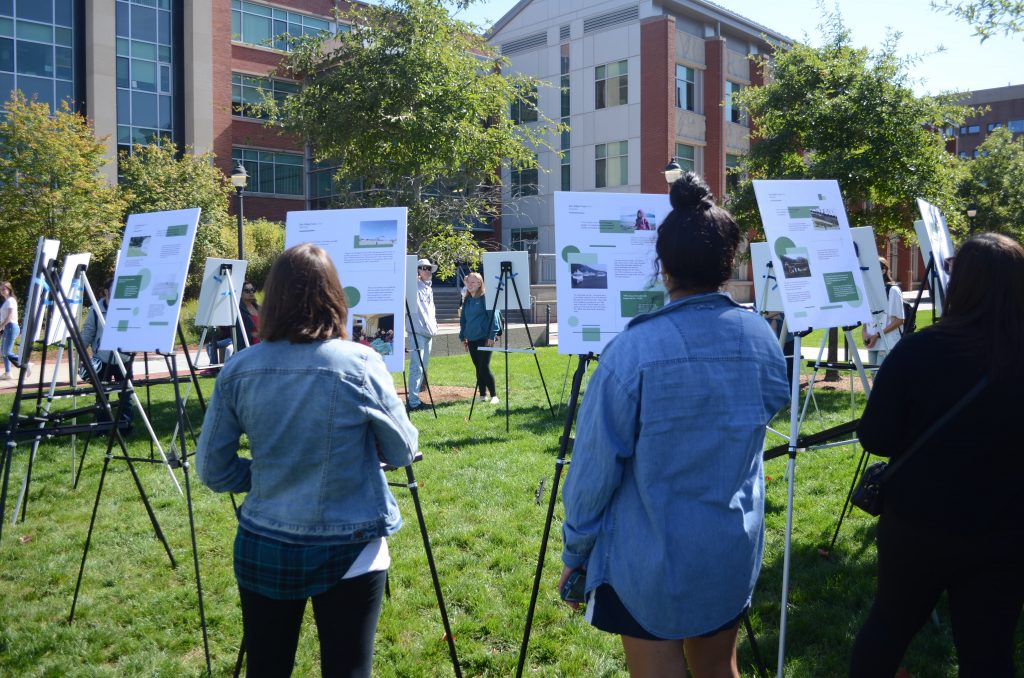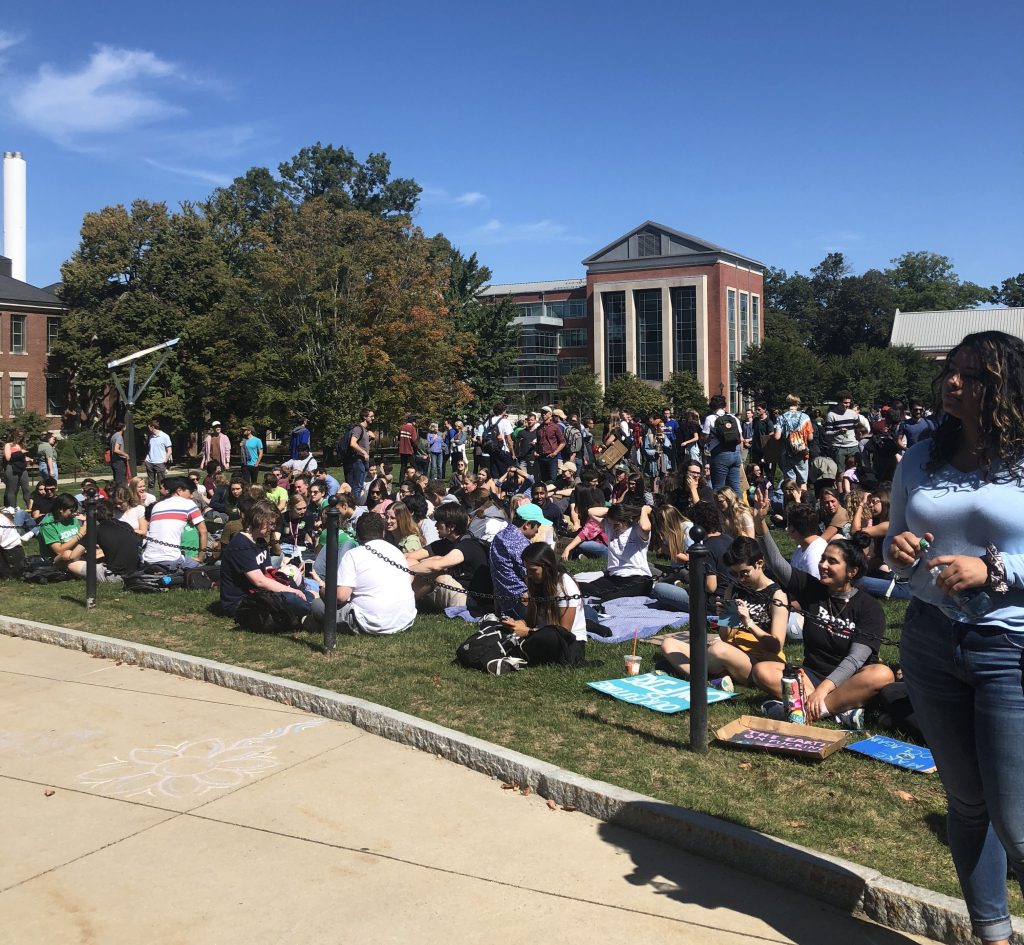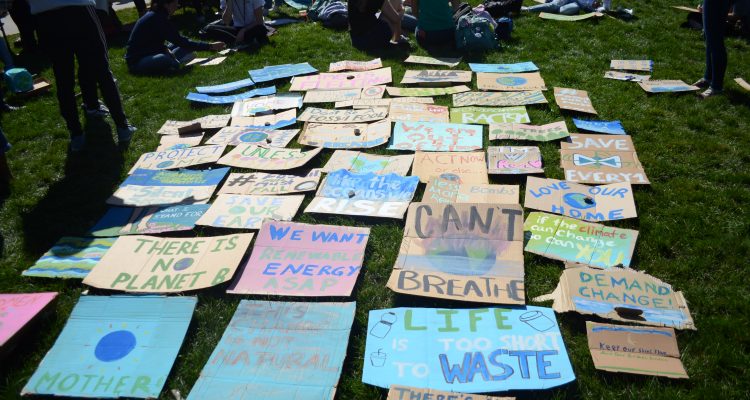On Friday, Sept. 20, a crowd of University of Connecticut students gathered on the Student Union Lawn to hold a climate strike, taking part in the Global Climate Strikes that were occurring throughout the world.
The strike, organized by UConn’s Fridays for Future chapter, was dedicated to “urging the University to take some important climate action on campus to fight climate change,” according to the group’s Facebook page.
Fridays for Future is an international movement of students who take time off from class to hold demonstrations that raise awareness of the risks climate change poses and holds politicians accountable for their lack of action.

The movement originally took off in 2018, when 16-year-old Swedish environmental activist Greta Thunberg refused to attend school and instead staged a one-person climate protest outside of the Swedish Parliament. Others were inspired by her and began to organize strikes around the world.
UConn’s Climate Strike began at 9 a.m., when students left class and gathered on the lawn. A variety of activities were set up, such as sign painting, hula hooping and even a performance from UConn a cappella group the Chordials. Educational posters were set up and there were books to read to provide more information about climate change.

Participants were also invited to sign a banner calling for climate change action that would be sent, along with a list of seven demands, to the UConn Administration. Among the demands were “Declare a climate emergency,” and “Stop the expansion of all fossil fuel infrastructure.”
At noon, the crowd migrated to the steps of the Student Union Terrace to listen to speeches before marching to Gulley Hall, where the demands were read to UConn President Thomas Katsouleas.
Senior Katharine Morris, the president and founder of UConn Collaborative Organizing, an activist group for intersectionality and solidarity, was one of the students who gave a speech. Morris discussed the link between climate change and environmental racism, pointing out that people of color who live in poverty are more likely to be affected by the worsening planet conditions.
“I want us to remember that we do not inherit the earth from our ancestors, we borrow it from our children,” Morris said. “Yet still, we have inherited a global crisis, and some have inherited it more than others.”

Juniors Jenny O. and Dana Chamberlain were hoping to send a message across a larger scale, not just to the UConn administration.
“We just feel like there’s no point in going to school, no point in going to class, if [the government] is not going to take people who go to class, people who get educated, scientists, seriously,” O. said.


